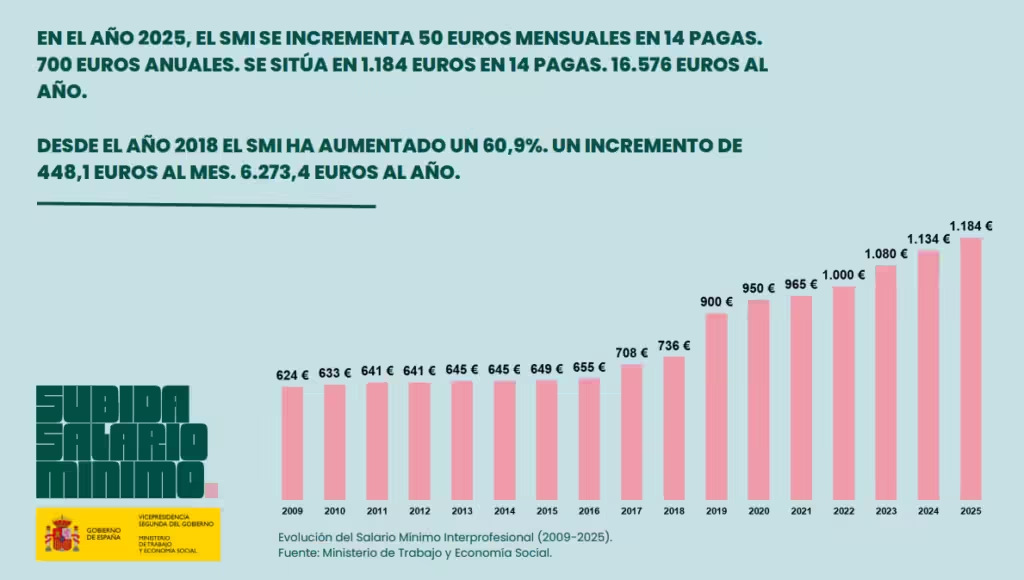Spain Raises Minimum Wage: How It Compares to the EU
The Spanish government has announced a 50 euro increase in the national minimum wage, bringing it to 1,184 euros per month (paid over 14 payments). This translates to an extra 700 euros per year for low-income workers. The change, announced today February 11, took effect retroactively from January 1, 2025, and benefits around 2.5 million employees across the country.
A Step Forward for Workers, But Is It Enough?
According to Labor Minister Yolanda Díaz, the decision was made in collaboration with labor unions and economic experts. She emphasized that while the amount might seem small to some, it is a significant boost for workers struggling to make ends meet. Since 2018, Spain’s minimum wage has grown by 61%, an increase of 6,273 euros annually. Government officials say this has helped reduce economic inequality by 18%.

Who Benefits the Most?
The biggest winners of the increase are women and young workers. Nearly 66% of minimum wage earners in Spain are women, and more than a quarter of those receiving the minimum wage are under the age of 25.
In terms of total numbers, most of the workers benefiting from the increase are in Andalucía, Madrid, Cataluña, and Valencia, as these regions have larger workforces. However, when looking at the percentage of workers affected, Extremadura, the Canary Islands, Murcia, and Andalucía have the highest proportion of employees on minimum wage.
How Does Spain’s Minimum Wage Compare to the Rest of Europe?
When looking at the European Union, Spain falls in the middle tier for minimum wages. Some countries offer considerably lower wages, such as Bulgaria (€551), Hungary (€736), and Greece (€830). Meanwhile, workers in Germany (€1,981), France (€1,802), and Ireland (€1,909) earn substantially more. Luxembourg leads the EU with a minimum wage of €2,638 per month.
Spain is grouped with other countries where the minimum wage falls between €1,000 and €1,500, alongside Slovenia, Poland, Lithuania, Portugal, and Cyprus. While the increase brings Spain closer to some of its Western European neighbors, it still lags behind the higher wages seen in Germany, the Netherlands, and Belgium.
It’s also worth noting that five EU countries, Denmark, Italy, Austria, Finland, and Sweden, don’t have a national minimum wage at all. Instead, wages are set through collective bargaining agreements.
What’s Next for Spain’s Economy?
Despite criticism from some business groups, Díaz insists that increasing the minimum wage is not a threat to Spain’s economy. In fact, she argues that fair wages help drive economic growth by increasing consumer spending. She also pointed out that executive salaries, rather than minimum wage increases for workers, are a bigger source of economic disparity.
For Spain’s lowest-paid workers, this increase is a welcome step toward better financial stability. While Spain’s minimum wage still trails behind some Western European nations, it offers a significantly higher wage than many Eastern European countries. As the debate over fair wages continues across the EU, Spain’s latest increase aims to bridge the gap and ensure a better standard of living for its workers.
While this increase aims to improve financial stability for low-income workers and reduce wage gaps across Spain, many feel that for a country like Spain, the minimum wage should be much higher and closer to that of nations like the Netherlands and France.
Share this content:




2 comments